
An Unconventional Decade: 10 Books to Read in Your 30s
One might expect a list of books to read in your 30s to be mostly nonfiction. Practical books about finance, career, family, relationships, health, fitness. But not this list! I wanted to come at the question of what to read in your 30s in a different way. I am presenting some challenges and examples of books that meet said challenges, because I don’t like to be too prescriptive.
Many people see the 20s as the decade when people figure out who they truly are. It’s also the decade of many people’s first moves into independence. Both of these goals can involve a lot of exploration. People then envision the 30s as the decade people “settle down.” I reject these notions because they’re saddled with a lot of limited (and often heteronormative, classist, ableist) thinking about how to make a life. But I do think that if you’ve worked on independence in your 20s, the 30s are a good time to work on interdependence. How you relate to others, how you relate to past and future versions of yourself, and how you connect to the world at large.
Any list of books to read in your 30s is going to be wildly idiosyncratic. Ultimately, read what you want! But we at Book Riot always encourage people to Read Harder. So I’ve set these goals that I believe are especially worthy and timely for thirtysomethings.
Goal: Upend a Childhood Fave
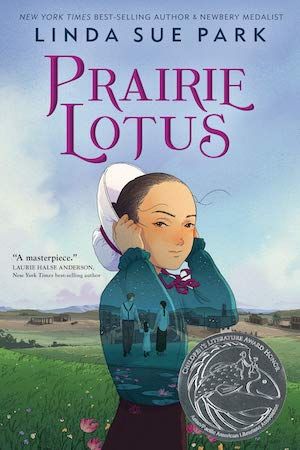
Prairie Lotus by Linda Sue Park
I read the Little House on the Prairie books countlessly many times in my youth. They are truly ingrained in me. When I reread them as an adult, I was dismayed at what I’d missed as a child. Ma’s blatant hatred for indigenous people. The minstrel show. I think these books are now better suited for academic study than childhood reading. Luckily, Linda Sue Park, another person who clearly held these books dear, has beautifully written into the space created when we relocate these books from childhood shelves. Prairie Lotus is about Hanna, a half-Asian girl moving from California to the prairie in the 19th century. I would eagerly hand this book to a child, knowing it too has the rich sensory pleasures of its inspiration. It’s also got the same sense of adventure, even danger. Prairie Lotus, which also stands on its own without any prior knowledge of the Little House series, reminds us to hold onto the things we love more gently. And that the act of letting something go doesn’t have to create emptiness. We can always make something new. Other books in this vein include Sisters of the Neversea by Cynthia Leitich Smith and So Many Beginnings by Bethany C. Morrow.
Goal: Find Delight
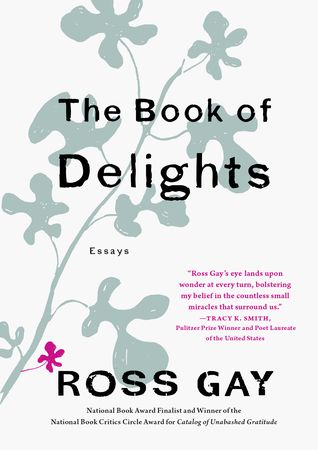
The Book of Delights by Ross Gay
Sometimes, when we’re in our 20s, efforts to find our personal style, taste, and interests can still be tied up in other’s perceptions of us. If I could go back in time, I might tell myself in my 20s that I really don’t have to try to like Lars von Trier movies or books by Thomas Pynchon. The Book of Delights, a volume of poetic little essays, is the perfect book to teach a reader how to come by pleasure honestly. To seek it out in this flawed world. There’s so much to love! The nature that surrounds us, the people we cross paths with, if we just take the care to notice. This is a book to savor, one essay a day, perhaps over a nice breakfast and a cozy beverage. Also read: World of Wonders: In Praise of Fireflies, Whale Sharks, and Other Astonishments by Aimee Nezhukumatathil.
Goal: Read a Classic
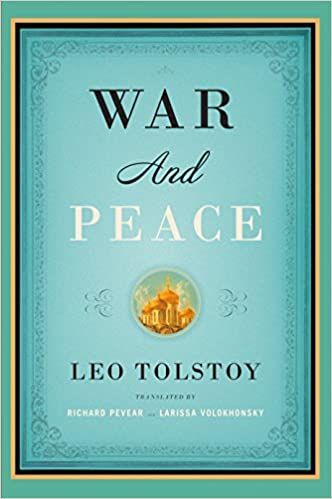
War and Peace by Leo Tolstoy
I did it. With all the possible books to read in your 30s, I included THE shorthand for a long, boring tome. But guess what? I read this book in my 30s and had a great time doing it. My reasons were a little silly — I wanted context going into seeing Natasha, Pierre & The Great Comet of 1812, the musical based on 70 pages of War and Peace, on Broadway. But this book is a ride! Sure it’s got drama: poisoning, duels, secret marriage, someone tying a policeman to a bear. But Pierre, the character at the center of the book, undergoes so many changes over time. The book helped me understand that life really does have many acts. We aren’t as fixed as we might think. If you don’t want to read this, pick another hefty classic in translation, like Love in the Time of Cholera by Gabriel García Márquez or modern classics like the Neapolitan Novels by Elena Ferrante.
Goal: Recognize That Parents Are Their Own People
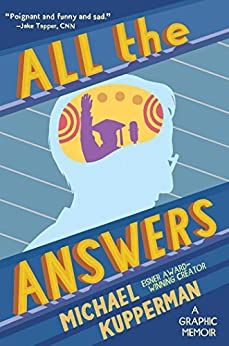
All The Answers by Michael Kupperman
In one’s 20s, the trend can be to create distance from one’s parents in the play for independence. In one’s 30s, relationships with parents can shift again, especially if you’re growing your family with partners and/or children. All the Answers is a riveting graphic memoir by a man whose father was a child star on a radio quiz show. The novel traces the author’s efforts to understand his father’s story as he struggles with dementia toward the end of his life. The book poses a deeply puzzling question: what parts of a parent’s past does a child have the right to know? Many people in their 30s are simultaneously parenting while still being parented, so it’s a good question to ponder in multiple directions. See also: Fun Home by Alison Bechdel.
Goal: Envision the Future
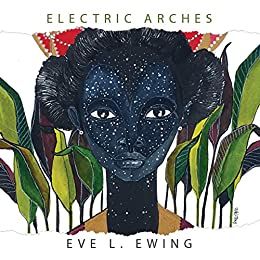
Electric Arches by Eve L. Ewing
I picked this book because it’s poetry and also Afrofuturism. Both are incredibly vital to incorporate into one’s reading diet. What I love about Electric Arches is how it ties childhood to visions of the future. Whether you’re thinking about the children of today or trying to honor your own inner child, keeping a childlike sense of imagination when it comes to future possibilities is one way to stave off hopelessness and dread, even in the face of big struggles. Also recommended: Love After the End: An Anthology of Two-Spirit and Indigiqueer Speculative Fiction edited by Joshua Whitehead.
Goal: Confront Mortality
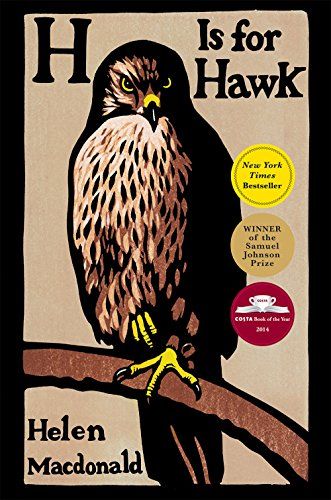
H is for Hawk by Helen Macdonald
Given my own gothic inclinations, I’m always up for a book that stares into the void. Grief is not a process beginning in one’s 30s by any means, but my experience of it certainly ramped up during that time. This book is so much more than a grief memoir. One helpful way of thinking about grief is the recognition that traces of deceased people, their words and their impact, flow into us and drift onward through time in different forms. H is for Hawk underscored that truth for me. This book, about grief and falconry and also the writer T.H. White, is not afraid to let itself be a little obsessed, and that’s also what I loved about it. It’s precise, emotional, spellbinding, and ambitious. Also recommended: The Year of Magical Thinking by Joan Didion.
Goal: Blow Up Everything You Know
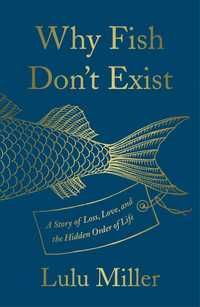
Why Fish Don’t Exist: A Story of Loss, Love, and the Hidden Order of Life by Lulu Miller
If you’ve upended a childhood fave, get ready to level up. Genre-bending memoirs like Why Fish Don’t Exist are some of my favorite kinds of books because I get to learn and feel at the same time. They’re the Reese’s peanut butter cups of books: two great tastes! I think this is a book best entered cold, so I will simply say that it’s about a woman’s journey to understand a biologist’s life and work. In the end, it’s about what in life we should hold onto tightly, and what deserves a gentler grip. This kind of consideration is perfect to undertake in one’s thirties, because sometimes we find ourselves metaphorically barreling down some road we turned onto years or decades ago, gripping the steering wheel like grim death, when we could use a chance to slow down and maybe look at a map. Why Fish Don’t Exist feels like a map. Also try: The Disordered Cosmos: A Journey into Dark Matter, Spacetime, and Dreams Deferred by Chanda Prescod-Weinstein
Goal: Engage With the Present
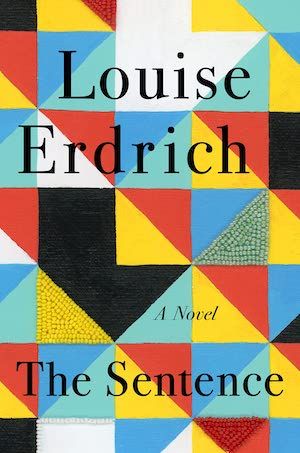
The Sentence by Louise Erdrich
How Louise Erdrich wrote a pandemic novel while we’re all still in the thick of it, I’ll never know. Books on this list that engage with the past and the future, but of course we have to live in the now. The Sentence is a ghost story, about Flora, who’s haunting the bookstore where Tookie, who survived prison by reading books, works. What’s beautiful about ghost stories is how palpable they make the need to confront history. There’s always overlap between past and present. But if there’s a ghost, you literally have a problem from the past you need to solve right now! In The Sentence’s case, racism and the brutal history of the treatment of Indigenous people in the U.S. can’t be ignored, especially not during a pandemic that hits some communities harder than others. It’s a multilayered, absolutely essential book. Also read: There There by Tommy Orange.
Goal: Find Your Family
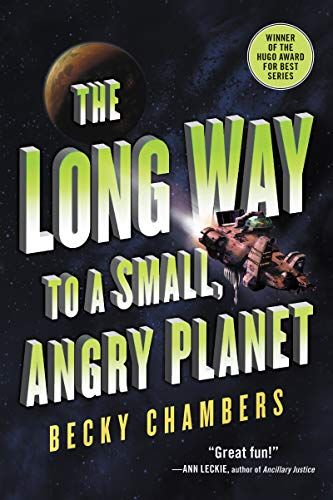
The Long Way to a Small, Angry Planet by Becky Chambers
If you haven’t expanded your family with partners or children by the time you’re 30, you might still be considering what a family will look like for you. I love books that get imaginative with what families can be. The Long Way to a Small, Angry Planet is creative in that regard, with a ragtag crew of a spaceship called the Wayfarer. Chambers envisions fascinating ways for her characters to exist and relate to each other. The plot is not the point of this book, and thank goodness for that. It’s leisurely and episodic, like a season of Star Trek more than anything else. It’s a great book if you’re looking to be inspired by found family feelings. Also try: Chilling Effect by Valerie Valdes.
Goal: Get Epic
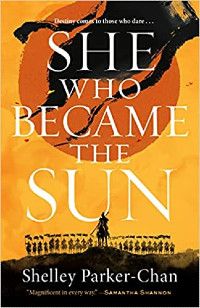
She Who Became the Sun by Shelley Parker-Chan
A cool thing about being in your 30s is recognizing how far you’ve come, and how much you can still accomplish. Everyone says “life is short.” But epics — and my above recommended classic War and Peace — remind us that life is also long and full of adventure. They’re perfect books to read in your 30s. She Who Became the Sun is a reimagining of Ming Dynasty history. It tells of a foundling orphaned girl who assumes her brother’s identity to enter a monastery and claim her own fate. With thought-provoking unpacking of gender, tumultuous love stories, complex characters, and all-out war, this is the book that will raise the stakes and make you feel the weight of your own destiny. Also read: The Black Tides of Heaven by Neon Yang.
In Summary
I hope these reading goals have stirred something in you. I do recognize that some people want more practical approaches to books to read in your 30s, so I will point you in a couple other directions. Maybe you are looking to be more productive, love yourself more, or be more confident. We’ve got also got suggestions for genuinely helpful books.
I’ll end with an anecdote of encouragement. When I was in my early 20s, I had a roommate in her 80s (long story). When her friends would come around for snacks and wine, she’d often invite me to join in. The conversations were lively, flowing this way and that. One of the women mentioned offhandedly that she had no idea what she was doing with her life until she was in her 40s. I was aghast. But now I wonder if she was actually ahead of schedule. If you’re seeking books to read in your 30s hoping for the key to unlocking the mystery of your life’s purpose, I don’t know if any of these books (or any book at all) can accomplish that. But they’ll be trusty companions on your journey nonetheless.











